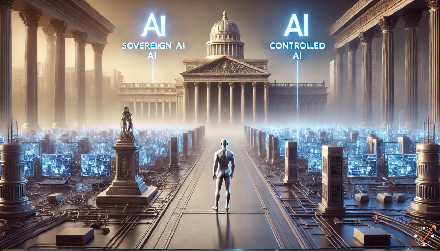VR: Bridging the Empathy gap – Reality or Paradox?
By Manoj Gupta, Founder
Virtual Reality (VR) is poised to revolutionise the way we cultivate empathy and drive conscious behaviours. With this statement, the questions immediately pop up:
Is it Real? How?
See, in this hyper-connected, feed frenzy with gazillion filters world - genuine connection can be a rare commodity these days. We scroll through carefully curated feeds, bombarded by photoshopped perfection and trolls.
Amidst this noise, it's easy to forget the human emotions behind all that virtual reality and sometimes insanity we consume.
But what if there is a way to bridge that gap by leveraging the very same technology?
Haute Couture to Hot Cotton fields
Imagine this: you're a high end French Haute couture fashion designer, sketching the exclusive design latest collection inspired by the rural attire of India.
But before finalising the design for those flowing linen pants, you slip on a VR headset.
Suddenly, you're transported to a sun-baked cotton field, witnessing the harsh realities of ethical fashion.
You see the water-intensive process, the long hours under the scorching sun, and the potential for soil degradation.
This immersive experience triggers your emotions and empathy for the environmental impact and human costs associated with your design choices.
Isn’t that’s real use-case of VR generating Empathy…?
VR's Impact on Corporate culture
Imagine this: a corporate training session where employees put on headsets and experience a day in the life of a minimum-wage worker or people at the lower ranks of the organization showcasing their endeavours and struggling to afford necessities.
This firsthand glimpse into economic disparity could have a profound impact on company policies and resource allocation.
Here comes another use-case of VR generating Empathy.
Thus, the application of VR has potential to generate empathy culture, be it at small boutique firms or large corporations.
The Virtual trend is getting REAL
Meta's 'VR for Good’
Heard about Meta's 'VR for Good' initiative?
It aims to leverage virtual reality (VR) technology to create positive social impact. This program is part of Meta's broader commitment to using emerging technologies to foster social innovation and sustainable development in various sectors including education, healthcare, and more. The initiative supports various projects that utilise VR technology to solve real-world problems and enhance people's lives.
HOPE International's ‘Poverty Simulation’
Another one is HOPE International's 'Poverty Simulation'.
This VR program is a deeply immersive learning experience designed to help participants to understand the challenges and complexities of living in extreme poverty.
The main objectives of the program are to foster empathy and understanding for those living in extreme conditions and to stimulate thoughtful discussion on effective responses to global poverty issues.
These are no brochures…these are real stories and real impact.
VR for good? We're all in!
Summing Up…
The VR has the power to foster empathy.
But, of course, it isn't a magic bullet.
There's a danger of creating inauthentic experiences that feel gimmicky rather than genuine. However, when done thoughtfully, VR has the power to:
- Evoke Emotional Responses: whilst facts do tell, and stories do sell, but VR makes you go much beyond…to feel. And, ‘feeling’ is a very powerful motivator for conscious behaviour.
- Challenge Perspectives: VR allows us to experience realities different from our own perceived notions, fostering a sense of bringing cohesion between the "us vs. them" mentality.
- Drive Behaviour Change: VR can inspire consumers to seek out ethically sourced products and businesses to support by creating a lasting emotional connection.
Digital transformation plays a major role in our lives. Why not leverage its power for good?
It offers a unique opportunity to bridge the empathy gap, fostering a future where conscious behaviour becomes the norm, not the exception.
VR, with its immersive capabilities, offers a game-changing tool – it is no longer science fiction.
As a Consciouspreneur®, I foresee this, as the dawn of a new era of conscious behaviour and conscious choices.
An exciting new ride for us to be ready for…!


